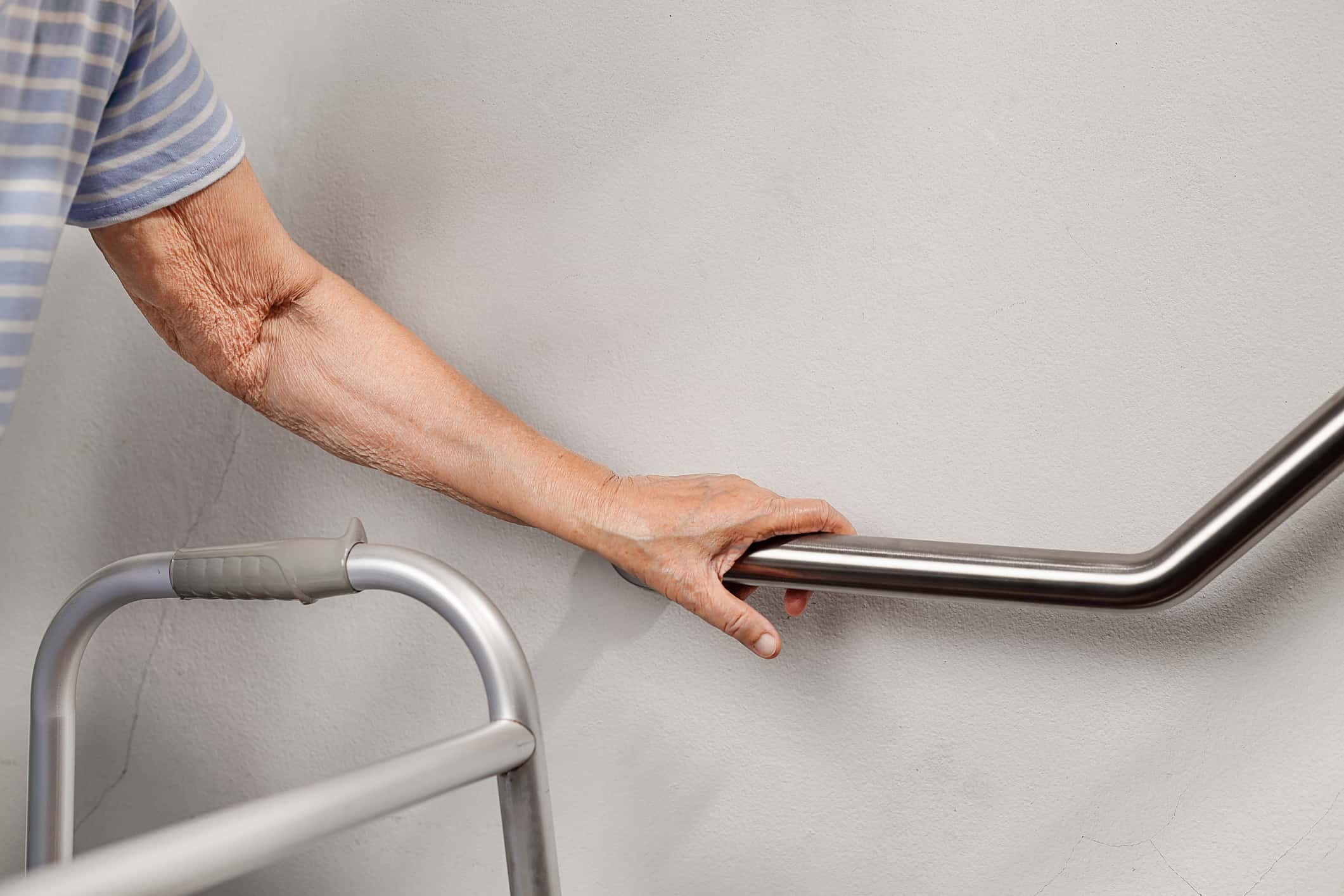Do you live with the chronic pain of Rheumatoid Arthritis (RA)? RA does far more than cause discomfort and pain; it can limit mobility and impede independence, eventually impacting quality of life. Join others in observing Rheumatoid Arthritis Awareness Day in February this year and share information about this debilitating condition widely.
Rheumatoid Arthritis (RA) is a debilitating condition that affects mobility, walking, small motor skills, and the ability to take care of one’s self. It can impact independence and autonomy, which in turn may compromise aging in place for those that wish to live life on their own terms and in their own homes. RA is an autoimmune disease that causes bone loss, chronic pain, and inflammation, including in the organs.
When someone has RA, it is not uncommon for them to rely on aids, devices, and mobility equipment; this may allow many sufferers to live independently, longer.
Rheumatoid Arthritis Awareness
Rheumatoid Awareness Day is in early February and has been observed since the year 2013. Since its inception, the aim of Rheumatoid Awareness Day is to educate and spread awareness of this debilitating condition. This day is recognized globally- providing a day of recognition and kudos to those suffering from RA.
At the same time, Rheumatoid Awareness Day strives to eliminate some of the harmful misinformation out there regarding RA. It is these misconceptions that lead to so many RA sufferers being misunderstood. The unpredictability of their symptoms may confuse those without RA- and could stigmatize RA patients who would benefit from compassion and accommodations. while at the same helping to clear up the misconception that it’s simply a form of arthritis. This lack of understanding about the disease causes a variety of problems, including with disability accommodations, clinical care, healthcare costs, and funding for new and continuing research. Another interesting goal of Rheumatoid Awareness Day is to disseminate information to debunk the common misconception that RA is merely arthritis; this is not true. Osteoarthritis or OA is the type of arthritis that many seniors experience as they get older; while OA and RA are both painful, they are two very different medical conditions. RA is progressive and there is currently no cure. It frequently leads to disability and can cause complex medical issues that may contribute to death. RA is a serious medical condition that should be monitored and treated by a licensed healthcare professional. Do you have Rheumatoid Arthritis? Talk to your provider to learn more today.
The Diagnosis
So, you have been diagnosed with arthritis; what does this mean? Well, first it means you are in good company; studies show that over 54 million adults report having had arthritis diagnoses from their doctor or provider; of these, nearly 24 million have some sort of limitation or restriction based on their arthritis. These numbers are expected to rise considerably in the next five to ten years, as RA pain and problems is among one of the three main conditions causing vocational disability across all ages.
Some common activities and tasks that can be challenging for those living with RA frequently include the following:
- Small motor skill difficulties, like grasping little items
- Holding cutlery, tools, or writing implements
- Reaching your hands over your head
- Fastening button and zipping zippers
- Remaining in a seated position for a period of two hours
- Lift more than ten pounds
- Climb a single flight of stairs
- Pull or push heavy items or objects
- Walk at least ¼ mile
- Grasp small objects.
- Kneel, stoop, or bend over
- Stand in place for two or more hours
- Going up or down stairs, steps, or risers
If you meet these criteria, discuss the possibility that you have arthritis with your healthcare provider.
The Prognosis
Perhaps one of the biggest hindrances of this condition is the unpredictability of RA symptoms. One day, you may feel fine and less stiff- while others, you struggle to get out of bed. The flare ups have no rhyme nor reason and may cause upset in families and households due to the severity and frequency of RA symptoms. It can make it tough to plan-ahead at times.
Another lesser-known and misunderstood aspect of RA is the toll that it takes on mental health and wellbeing. Rheumatoid arthritis can cause mood swings, increased anxiety, and depression, too. This is compounded by the worry that comes from living with an unpredictable and significant medical issue like RA- creating additional stress and duress. Many find relief with treatment from mental health providers.
Rheumatoid Arthritis can make you a prisoner, limiting independence, and causing great pain that affects overall quality of life. Does RA impact your mobility or limit your access? Call or contact the professionals at Pacific Mobility today.
President, Husband, Father, Grandfather Graduate of UC Davis- Bio Sci Major- Go Aggies! Jeff has extensive experience in all of Pacific Mobility’s products and services, and specializes in accessibility products as well as stairlifts, ceiling lifts and custom wheel chairs. His hobbies include spending time with family, gardening, mountain biking, exercising and off road motorcycle riding.
24 years as Owner/President of Pacific Mobility Center – selling, installing, and servicing stairlifts, porch lifts, ceiling lifts, pool lifts, handicap ramping, specialty wheelchairs, scooters, power wheel chairs, and other power mobility devices
Certified Environmental Access Consultant since 2008
Licensed General Contractor since 1998
Certified Aging in Place Specialist since 2016
Board Member for Home Access Professionals
Member of Association of Members of the Accessibility Equipment Industry (AEMA)




